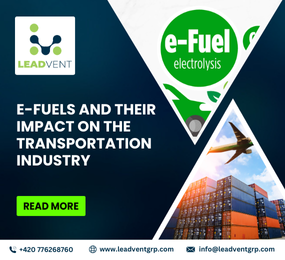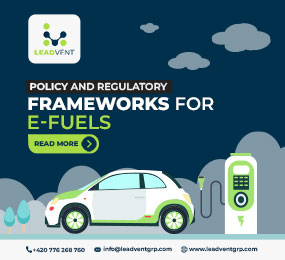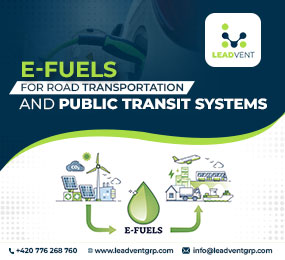The post-pandemic world has encountered a plethora of challenges for every industry. These obstacles have compelled the transportation industry to shift towards eco-friendly energy solutions. Owing to such trends, e-Fuels has turned into a major point of discussion for the industry leaders and created brain waves among the policymakers.
The World e-Fuels Summit, 2024 in Amsterdam, Netherlands, is arranged to gather the business leaders, stakeholders, and policymakers from the farthest corners of the world and to facilitate a thought-provoking discussion. Participation in this knowledge-sharing platform is anticipated to open up new outlets for the evolution of e-Fuel into a more sustainable solution. Here in this blog, we are going to highlight the different notions and perspectives of the industry leaders to trace out a thriving future of e-Fuels.
The growing demand for the e-Fuels
Presently, all the industry leaders and policymakers have their eye on the global e-fuel market and the ceaseless ebb and flow of demand and supply here. As per the recent statistical report, the global e-fuel market size in 2023 was 125.10 bn USD. Besides that, in the European market, the demand for e-fuel has skyrocketed and represents 47% of revenue share. The industry leaders have demonstrated it as a beacon of hope for the entire transportation sector, including shipping and aviation. Such a possibility in the future may oust the conventional fossil fuel entirely and steer the human race towards a better existence.
Perspective of the industry leaders on E-Fuels
Low carbon fuels, or e-fuels in the present context, are taking centre stage and inviting the industry leaders to take part in the session of brainstorming for fruitful outcomes. The World e-Fuels Summit 2024 is solely aimed at opening up the potential opportunities for future collaborations and is expected to create a world free from the curse of carbon emissions. Let's take a look at the below pointers to find out what the industry leaders have to say about the future of e-fuels.
A) Investment opportunities
As the industry leaders have started to take interest in alternative fuels, it has laid the foundation for the clean fuel start-up like INERATEC. As per statistical data, as of now INERATEC has raised around $129 million USD to scale the production of low-carbon based fuels. Besides these innovative endeavours, it is also crucial to derive the support and financial subsidies from the government to turn the future of e-fuels to be brighter than ever. The World e-Fuels Summit, 2024 has its sublime intent of shedding light on the economic opportunities that the transportation sector in the future can reap by capitalising on alternative fuel solutions.
B) Technological advancement
The ceaseless evolution of the technological equipment in reality is leaving a prominent influence on the process of e-fuel production. Ms. Barbara Frenkel of Porsche, along with their global partners, opened up a pilot plant in Chile. This step of Porsche authority was aimed at scaling the amount of e-fuel production. Such efforts and initiatives of industry leaders like Frenkel are inspiring others to come up with breakthroughs that can lead to the reduction of the price of e-fuel.
C) Obstacles
Despite the myriad of possibilities associated with e-fuel production, industry leaders and experts have sceptically viewed the overall production system. Some of the experts have opined that high production costs and the lack of clarity in the sphere of low-carbon fuels are hindering the path of the transport industry to become decarbonised wholly.
FAQs
1) What are e-Fuels?
E-fuels are synthetic fuels that contain a low amount of carbon dioxide. In comparison to the traditional fuels, this form of alternative fuel can reduce the rate of emission and can replace the fossil fuel that is responsible for the complete carbon emission in nature.
2) Which are the sectors that can derive benefits from e-fuels?
E-Fuels are beneficial for all the industries, both directly and indirectly. However, the maritime, aviation, and heavy-duty transportation sectors can reap the most advantages out of it.
3) When can e-Fuels become commercially viable?
Widespread adoption and high amount of production of e-fuels can help in driving down the cost and making this alternative system commercially viable.
Bottom Line
The future of alternative fuels is undeniably promising and complex at the same time as it is still in its piloting phase. But through strategic initiatives, collaborations, and knowledge-sharing, this fuel can shift human existence towards a greener future. The World e-Fuel Summit, 2024 is playing the pivotal role in bridging the gap between theory and practice when it is concerned about low-carbon fuels. For more details regarding this summit or to take part in the insightful journey of the World E-Fuels Summit 2024, check out our website now.












